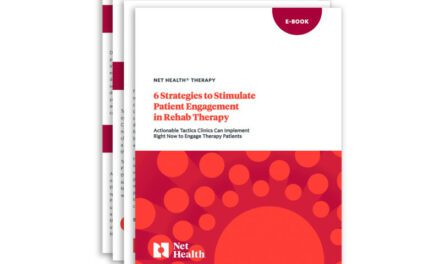Communication, Documentation, and Education: Directors of Rehab Weigh in on the Top Challenges in Acute Therapy
Hospital rehab directors were among the first healthcare workers to pivot their daily operations, from redeploying staff members to act as screeners at facility entrances to cross-training therapists to be techs in every unit. Now, nearly 12 months since the pandemic began, these same rehab directors are sharing some of the largest challenges—along with the lessons they’ve learned from them—with you.
On January 26, Josh Drummond, DPT, ATC, MHA – Director of Rehabilitation Services, Williamson Medical Center was joined by Faith Francis PT, Co-ECO – Director of Orthopedics, TriStar Hendersonville Medical Center and Valerie L. Wagner, PT, DPT – Director of Rehab Services, Cartersville Medical Center in a webinar hosted by Net Health.
Here are just a few of the many topics and lessons the three shared for managing hospital acute care therapy now and into the future.
Harness Communication to Battle Operational Challenges
Hospital acute care therapy workers are experiencing more operational challenges than ever before, ranging from staffing issues, staff education surrounding COVID-19, real-time data reporting, and more. But at the heart of these operational challenges is one common denominator: communication.
“Transparency with our staff and organization has been critical,” revealed Drummond. “I’m always a huge proponent of very transparent communication and hitting on education topics quickly. We’ve seen a really high value in frequently and very transparently communicating with our staff about exactly where things are.”
Panel Discussion: Acute Care Therapy Trends and Best Practices in 2021
Hospital Directors of Therapy Discuss Top Topics in Acute Care Therapy
Oftentimes, especially in moments of high panic, therapists can feel as though life-changing decisions are being made behind closed doors. Open communication ensures therapists feel connected during this time of constant change.
Need for Real-Time Data to Make Acute Care Hospital Beds Available as Quickly as Possible
Throughout the pandemic, hospital staff were forced to streamline admissions, transfers, and discharges as part of a concentrated effort to make acute care hospital beds available as quickly as possible. The easiest way to do that? Utilize real-time data.
“We had to set some expectations with the therapist of documenting immediately after the patient was treated, or soon after as possible,” shared Francis. “And the reason for that is so that the patients that are ready for discharge can move through the system in order to free up a bed, to keep patients from backing up into the ER or even the OR.”
At TriStar Hendersonville Medical Center, therapists are now expected to document within one hour of seeing the patient, so information can reach the necessary party in real-time and beds can be cleared for incoming patients.
Standardizing Outcome Measurement for the “New Normal”
As for current trends in standardized outcome measurement for the acute care setting, the rehab directors shared the pandemic shouldn’t be a reason to abandon typical measures. However, facilities should learn where to adopt new practices, to streamline the transfer or discharge process.
“Typically in our hospital, we would keep patients a day or two overnight,” said Wagner. “Now with the lack of beds, trying to get patients home, and decreasing risk of exposures, we’re discharging them from PACU after six hours of recovery.”
“We’ve had to make a shift, and that will show up a little bit in our data, but of course we can explain it,” she adds.
Continue to Practice Empathy While Managing COVID-19 Concerns
Above all, every panelist of the recent webinar agreed on the importance of practicing empathy while educating and managing COVID-19 concerns.
“We’ve had more deaths in the last month than we’ve ever had at this hospital,” shared Wagner. “So I’ve been really trying to push just emotional support. … Provide reassurance because not only is COVID affecting our day-to-day work operations, but most of us have families at home.”
“An increased mortality of our patients is something that I think transitions into this idea of just overall staff wellbeing,” added Drummond. “I think people tend to push aside the idea of that impacting them in our therapy department. So it’s something that I hope people are talking about and watching and trying to connect with staff.”
Navigate New Waters Together
The COVID-19 pandemic has altered the way hospitals must approach acute care rehab therapy, but in the words of Williamson Medical Center’s Josh Drummond, “This year has shown us that we are so much more tolerant and so much more capable of doing things so much more quickly than we ever thought possible.”
Evaluate Clinician Productivity With This Simple Calculator
Directors of Rehab Discuss Top Topics in Acute Care Therapy
Sponsored by

Medqor is committed to protecting and respecting your privacy. We may contact you about our products and services or share information with sponsorship partners, as well as other content that may be of interest to you. By submitting your information, you consent to us contacting you for this purpose in accordance with our privacy policy.
For further information, please check out our privacy policy here






